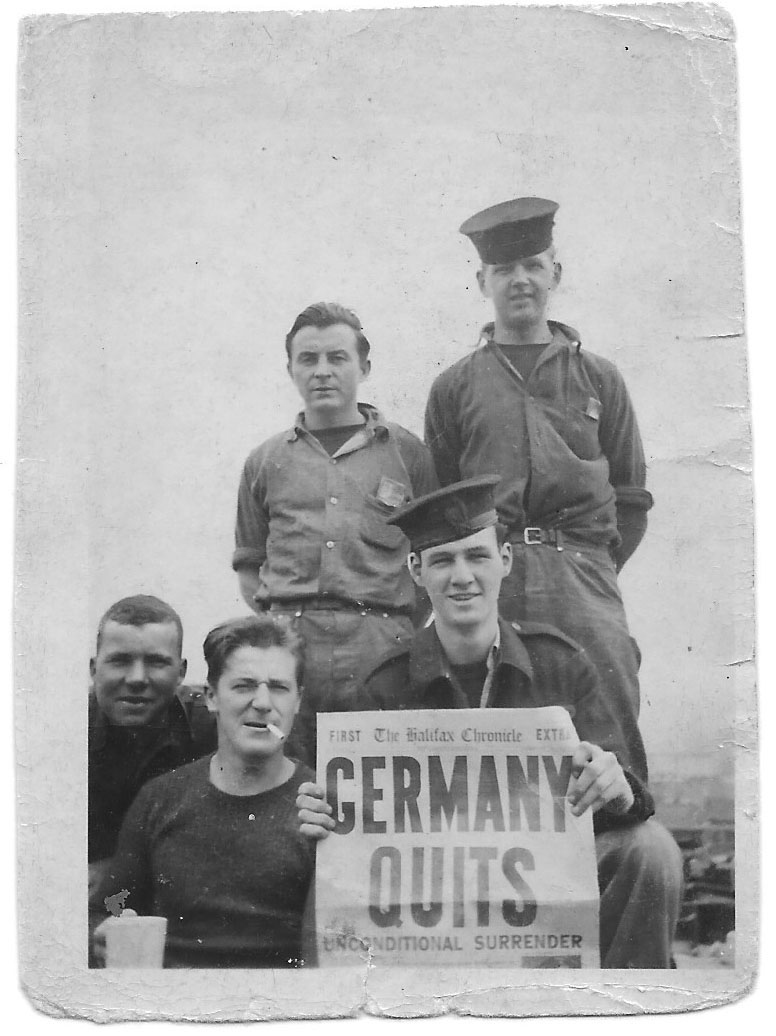Battle of the Atlantic: Bill Wilson remembers the war’s end
By Lookout on Jul 03, 2020 with Comments 1

Bill Wilson holds a copy of a local newspaper that reads “Germany Quits”, marking the end of the Second World War.
Able Seaman (Retired) Bill Wilson, Royal Canadian Naval Volunteer Reserve ~
On the morning of May 8, 1945, His Majesty’s Canadian Ship (HMCS) Ottawa, along with the destroyer HMCS Restigouche, was alongside on the Dartmouth side of the Halifax Harbour, having just escorted the troopship Steam Ship Sithia into Halifax with returning wounded members of the Canadian Forces and a large number of war brides.
It was about 11:15 a.m. I was working on my Oerlikon gun on the starboard flag deck when I heard a merchant ship that was close by blowing its horn repeatedly.
While we all knew the war was almost over, when I heard the repeated blowing of the ship’s horn, my first thought was that it could be an emergency such as another Halifax Explosion. I quickly moved to the port side and saw the ship was between the Halifax Dockyard and the Dartmouth side, and heading seaward.
At the same time, I passed Signalman “Soup” Campbell from Flin Flon, Man., who was reaching out for the lanyard controlling our ship’s siren and yelling, “The war is over!”
Within seconds, the entire harbour was a bedlam of noise as every merchantman and warship, large and small, began blowing its horn and siren.
It was Victory in Europe, or V.E., Day.
As we were all rushing around slapping backs, the pipe was made to “splice the main brace, all hands lay aft on the quarterdeck.”
At that point in time, while I was 20 years of age, I did not draw the daily tot of rum that I was entitled to. I had found that two ounces of rum at 11 a.m. was a little too much and made me quite unproductive for the whole afternoon.
Besides, by turning the tot down, I received three cents in lieu which was not insignificant when I was only being paid about $1.50 a day. However, this was V.E. Day, the war was over in Europe, so I quite willingly accepted the King’s extra tot, and it went down well.
While we were all enjoying the rum, the pipe was made that the admiral had ordered “open gangway”, which meant that anyone serving aboard ship could leave the ship at any time, unless the ship was under sailing orders, without having to appear before an officer for the routing “inspection.”
No one – man or woman, sailor, soldier or airman – will ever forget where they were on May 8, 1945.
––––
Filed Under: Top Stories
About the Author:






Bill was one of the best CO’s I ever served under
Great story First time I’ve ever seen this
Congratulations to you CPO1 retired